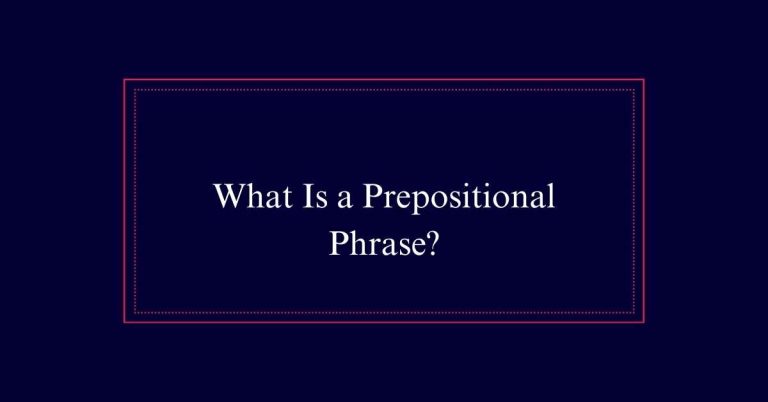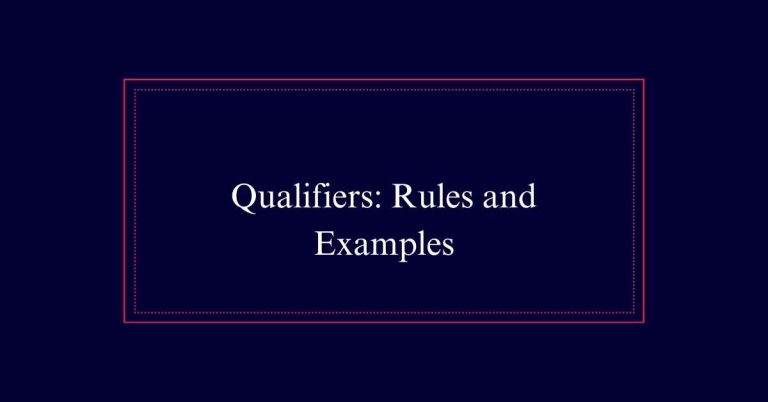Impersonal Verbs
Impersonal verbs do not refer to a specific subject, using ‘it’ as a dummy subject instead. For instance, ‘It is raining’ and ‘It is snowing’ show how these verbs are used to describe weather conditions. They enhance clarity and objectivity, especially in formal writing. Impersonal verbs often have a valency of zero, meaning they do not require additional elements to form a complete sentence. Their use guarantees straightforward, concise communication.
What Are Impersonal Verbs?
How do we define impersonal verbs in the context of English grammar?
Impersonal verbs are verbs that do not have a specific subject. Instead, they use a dummy subject, often ‘it.’ These verbs are used to express general conditions or states. Unlike most English sentences, which require a clear subject, impersonal verbs focus on the action or condition itself.
For example, in ‘It seems,’ ‘it’ does not refer to anything specific.
Impersonal Verbs in Weather
In weather-related contexts, impersonal verbs are frequently used to describe various atmospheric conditions. These verbs do not have a specific subject and are often accompanied by the impersonal pronoun ‘it.’ Common examples include:
- It is raining – evokes the sound of raindrops.
- It is snowing – brings to mind a serene, snowy landscape.
- It is thundering – conjures the image of a stormy sky.
These verbs efficiently convey weather states without needing a specific subject. The impersonal structure allows for clear and concise communication. By using phrases like ‘It is raining,’ ‘It is snowing,’ and ‘It is thundering,’ speakers and writers can effectively describe weather conditions, evoking vivid imagery and emotions.
Valency in Grammar
Understanding valency in grammar involves examining the number of elements that depend on a verb in a sentence. Valency determines how many arguments a verb can have.
For example, intransitive verbs like ‘sleep’ have a valency of one, needing only a subject. Transitive verbs, such as ‘give,’ require at least two elements: a subject and an object.
Impersonal verbs, however, often exhibit a valency of zero, meaning they do not need any specific subjects or objects.
Zero Valency Verbs
Zero valency verbs are unique in that they do not require a specific subject or object to convey meaning. These verbs operate independently, often describing natural occurrences or general states. For example, ‘It rains,’ where ‘rains’ is the zero valency verb, and ‘it’ serves as a placeholder subject.
Consider the following:
- Simplicity: Zero valency verbs make expressions straightforward and concise.
- Clarity: They provide clear descriptions without needing additional elements.
- Efficiency: These verbs are efficient, avoiding unnecessary complexity in sentences.

Usage in Sentences
To illustrate how zero valency verbs function in sentences, consider examples that describe weather conditions. For instance, ‘It is raining’ uses ‘is raining’ as the impersonal verb. The word ‘it’ acts as a dummy subject.
Similarly, ‘It snows in winter’ showcases the impersonal verb ‘snows.’ These verbs do not need a specific subject. They describe situations or conditions.
Other examples include ‘It is thundering’ and ‘It will storm tonight.’ Each sentence follows the same structure: an impersonal verb and the dummy subject ‘it.’
Third-Person Singular Conjugation
When using impersonal verbs, they always adopt the third-person singular conjugation. This means the verb form is consistent, regardless of context.
Here are three key points to remember:
- Uniformity: Impersonal verbs like ‘it rains’ or ‘it seems’ use the same conjugation.
- Simplicity: The third-person singular form simplifies verb usage.
- Clarity: This structure maintains clear communication.
For example, ‘it is raining’ and ‘it appears’ both adhere to this rule. This predictable pattern aids in constructing grammatically correct sentences effortlessly.
Additionally, this consistency applies across various tenses, ensuring that impersonal verbs remain straightforward to use.
Common Weather Verbs
Third-person singular conjugation plays a significant role in the usage of common weather verbs. These verbs describe weather conditions and are impersonal, meaning they do not refer to a specific subject.
Examples include ‘it rains,’ ‘it snows,’ and ‘it storms.’ The pronoun ‘it’ acts as a dummy subject. This is essential in English grammar to maintain correct sentence structure.
Weather verbs often appear in forecasts and reports to convey current or predicted conditions. They simplify communication by focusing on the weather itself rather than who or what is experiencing it.
Formal Writing Applications
Impersonal verbs play a significant role in formal writing by offering a way to present information objectively. They allow writers to convey facts and observations without personal bias. This is especially useful in academic papers, reports, and professional correspondence.
Here are three reasons why impersonal verbs are effective in formal writing:
- Neutral Tone: They help maintain a neutral and unbiased tone, essential for credibility.
- Clarity: Impersonal constructions make sentences clear and straightforward.
- Formality: Using impersonal verbs adheres to the formal style expected in professional settings.
Tips for Effective Usage
To effectively use impersonal verbs, uphold consistency in verb tense and guarantee clarity in your sentences. Assure that the verb tense matches the intended timeframe of your statement. This helps avoid confusion and maintains fluidity in your writing.
Use the dummy subject ‘it’ to make your sentences clear. For instance, ‘It seems that…’ or ‘It is raining.’ This helps your readers understand the general context or observation you are making.
Avoid overcomplicating sentences; keep them straightforward and direct. Additionally, use impersonal verbs to convey general truths or observations without bias. This enhances the objectivity of your writing.
Avoiding Common Mistakes
Many writers struggle with common mistakes when using impersonal verbs. These errors can impede clarity and weaken writing. To avoid them, keep these points in mind:
Misusing Subjects:
Always use the impersonal pronoun ‘it’ as the subject for impersonal verbs. Example: ‘It is raining,’ not ‘Raining is.’
Tense Consistency:
Maintain consistent verb tense to avoid confusion. Switching tenses can make your writing unclear.
Overcomplicating Sentences:
Keep sentences simple. Impersonal verbs work best in straightforward, declarative sentences.






